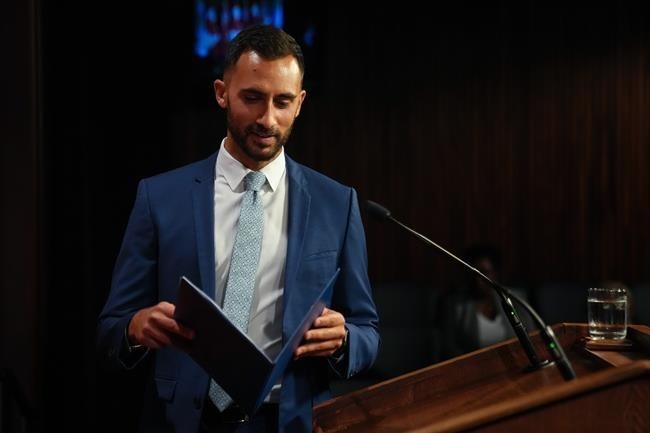TORONTO — Ontario public high school teachers will not go on strike this fall, if members accept a tentative agreement reached Friday by their union to use binding arbitration if needed to get a contract.
The Ontario Secondary School Teachers' Federation said Friday that if members ratify the deal reached with the government, the union will keep bargaining until Oct. 27 and at that point any remaining issues would be settled by arbitration.
"We will continue to bargain, but this proposal does establish a clear pathway forward for this round of bargaining that could potentially end in arbitration," OSSTF president Karen Littlewood said.
"This process that we are now bringing to our members promises to break any impasse at the bargaining table by bringing in a third party arbitrator to seek a fair and just resolution."
The four major teachers' unions have been in bargaining with the government for more than a year and all have complained about the slow pace.
The Elementary Teachers' Federation of Ontario and the Ontario English Catholic Teachers' Association are planning strike votes for the fall, but Education Minister Stephen Lecce says he is making the same offer to them, as well as the union representing teachers in the French system.
"Now that we have a tentative agreement with OSSTF, we have now just invited all three teacher federations to meet with us as early as Monday so that we can lay out this proposed agreement and to ask them to agree to it as well," Lecce said.
"This should not take those unions weeks, but rather days to agree to this incredibly fair, reasonable student-focused proposal that keeps kids in school."
However, the three unions issued a joint statement saying it is not something they can consider at this time.
"Entering into binding arbitration at this juncture would not support the students we serve in elementary and secondary schools – as binding arbitration would all but guarantee that the key issues we have brought forward at our respective bargaining tables, which are critical to learning and working conditions in our schools, would not be addressed," the unions wrote.
Binding arbitration is not normally used in education collective bargaining, but is used in some other broader public sectors.
Littlewood said the proposal would also give OSSTF members a remedy for "wages lost" under a wage restraint law known as Bill 124. That 2019 law capped salary increases for teachers and other public sector workers to one per cent a year for three years.
It was ruled unconstitutional by an Ontario court, but the government has appealed.
The OSSTF had told members in a recent memo that it was also planning strike votes in the fall, saying the government had shown little interest in substantive negotiations and a strong strike mandate would demonstrate a determination to get a fair deal.
Education workers represented by the Canadian Union of Public Employees were the first to get a deal in this round of contract negotiations, with CUPE saying the deal came with a $1-per-hour raise each year, or about 3.59 per cent annually, for the average worker.
This report by The Canadian Press was first published Aug. 25, 2023.
Allison Jones, The Canadian Press

